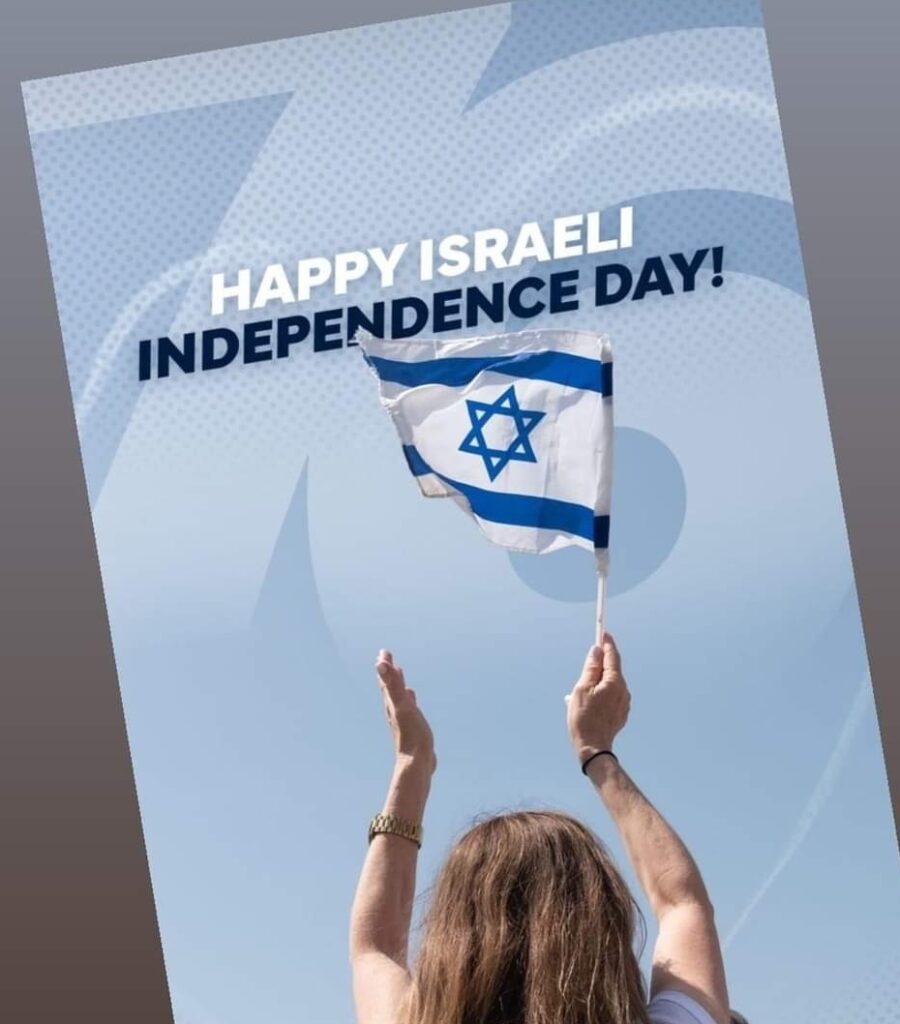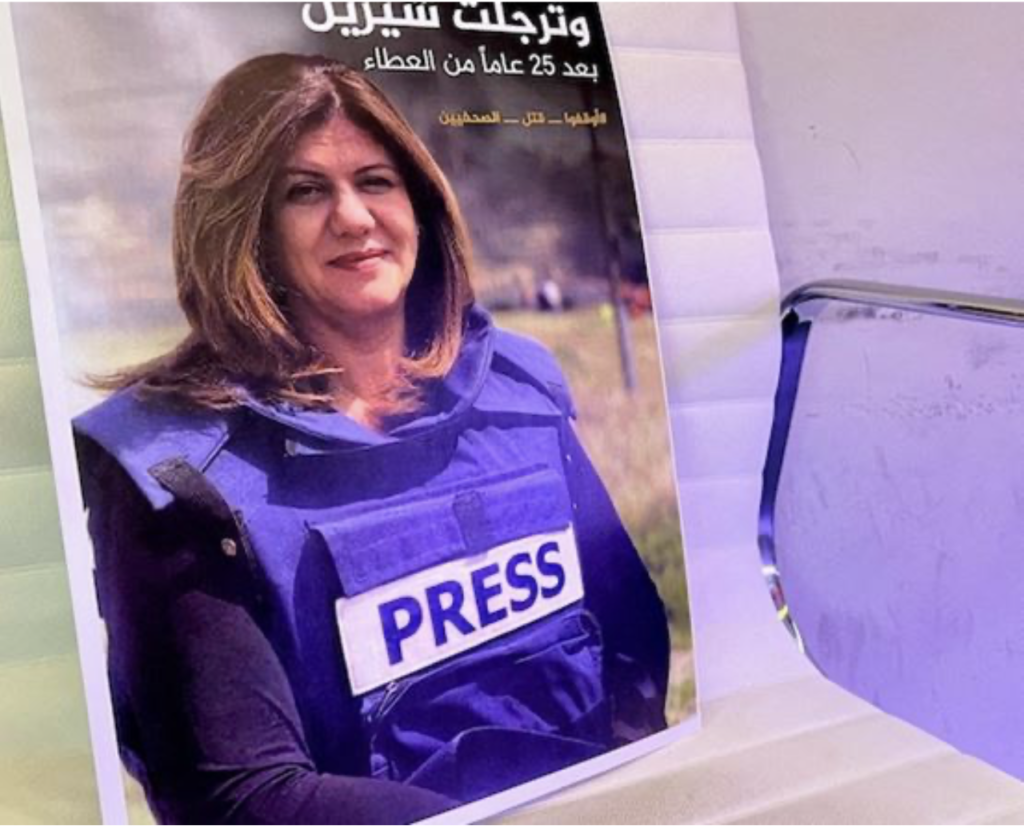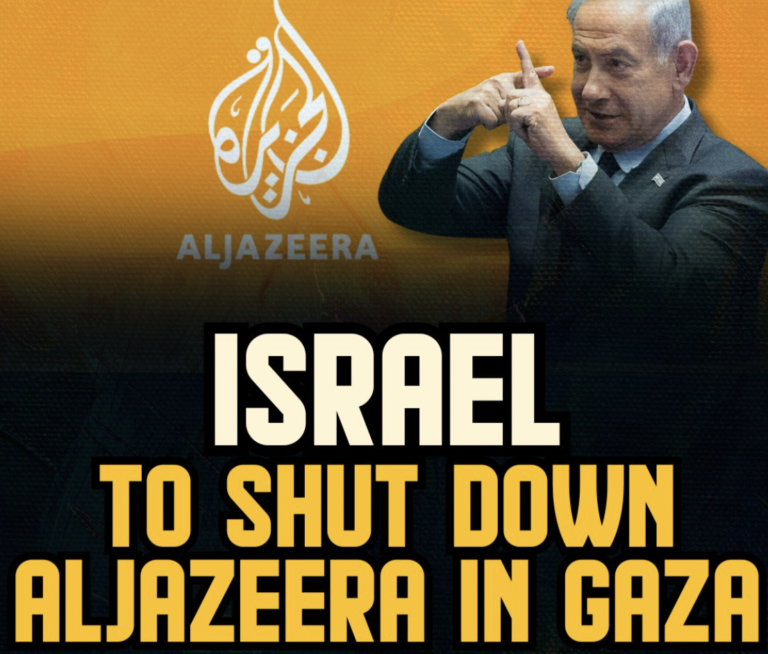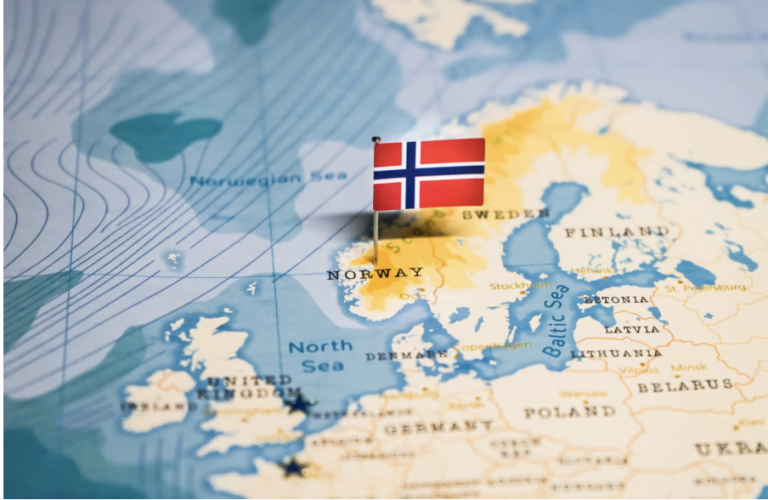By Andrea Tucci,
Israel celebrated its independence anniversary on May 14th, known as Yom Ha’atzmaut in Hebrew. On this day of the Gregorian calendar, David Ben Gurion, the first Prime Minister of Israel, read the Declaration of Independence, marking the birth of the modern State of Israel.

The borders corresponded to those outlined in the United Nations plan of 1947, which divided the territory of the British Mandate of Palestine into two parts: 52% for the Jewish state and 48% for the future Arab Palestinian state. Shortly after the Israeli Prime Minister’s proclamation, the country found itself at war. Iran, Syria, Lebanon, Saudi Arabia, Iraq, and Yemen never recognized its independence. For the Arab world, that day is often remembered as a catastrophe (Nakba in Arabic). However, the conflict initiated by the Arab countries ended with a military victory for Israel, which has never experienced a day of peace since its inception.
Israel celebrates its 75th anniversary amid a tense atmosphere. Apart from external challenges, it must now also contend with internal turmoil, particularly strong protests against Netanyahu’s judicial reform. Itamar Ben Gvir, the leader of Jewish Power, and other leaders of the religious and nationalist right support Netanyahu’s reform efforts. On the other side are not only opposition parties but also a wide array of associations, unions, and committees. These protests, held between March and April, paralyzed airports, hospitals, offices, and schools across the country, prompting Netanyahu to postpone final approval of the new law.
Israel is divided over the significance of these protests. Some commentators view them as weakening the country, potentially rendering it incapable of facing terrorism and external challenges. These challenges include not only the Palestinian issue but also the Iranian nuclear program and the isolation of the Israeli government, particularly following the China-mediated agreement between Iran and Saudi Arabia, which has removed Tehran from regional isolation.
The wounds and anxieties shaking Israeli society will inevitably lead to considerations of numerous future uncertainties. In a country that declares itself democratic (in fact, it claims to be the only democracy in the Middle East), freedom of the press and repression against left-wing Israeli teachers are becoming constant concerns. Hundreds of teachers fear expressing their opinions regarding the military operation against Gaza. The goal of the Israeli state is to silence any critical voices, leading to dismissals, social media shaming, and even threats of imprisonment.
Anyone who doesn’t align is considered a traitor, an enemy to be treated as such… On May 5th, the Israeli government decided to block the Al Jazeera television network in the country. This decision could complicate international relations between Israel and Qatar, which has frequently sought to mediate between the Israeli government and Hamas to achieve a ceasefire.
While the Foreign Press Association, representing international journalists in Israel, urged the Israeli government to “reconsider its decision,” stating that the closure of Al Jazeera in the country is a cause for concern for all supporters of press freedom. The Israeli government’s decision has also been strongly criticized by the United Nations, in particularly from the High Commissioner for Human Rights. Since the beginning of Operation Iron Sword (the current military operation in Gaza), more than 140 Arab journalists have been killed in Palestinian territory, including Shireen Abu Akleh, well-known in the Middle East. The Israeli government labeled her killing as “a serious mistake” and immediately declared that Israeli security forces “used lethal force,” violating international human rights. At the time of her killing, Shireen Abu Akleh was wearing a bulletproof vest clearly indicating her status as a member of the press.

Journalist Shireen Abu Akleh
This public distrust of the government weighs heavily on the current climate, demonstrating the complete absence of a strategy from the Israeli Prime Minister. The future is fraught with uncertainties, from institutions to relations with Palestinians, concerning human rights and democracy… At a time when the tragedy of Gaza civilians significantly tarnishes their country’s image globally, Israelis must face the dilemmas of this endless, cruel war, approaching a dangerous escalation in Rafah, in the complete absence of a common future plan. All of this occurs during the anniversary of the Liberation of the Jewish state. But who are the oppressed today?




